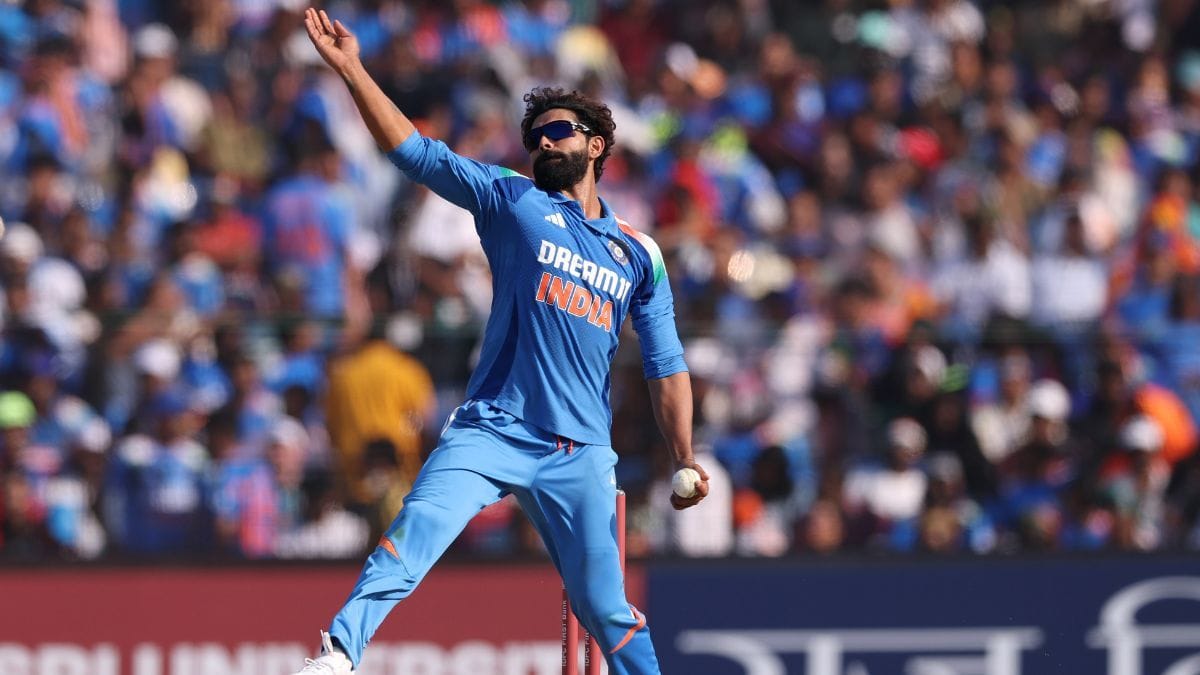BCCI Criticized for Ravindra Jadeja's Australia ODI Exclusion: "Is He Extra Baggage?"

BCCI Blasted for Ravindra Jadeja's Australia ODI Snub: "Is He Extra Baggage?"
Ravindra Jadeja's exclusion from India's ODI squad for the Australia tour has sparked criticism, with former India opener Sadagoppan Ramesh leading the charge against the BCCI's selection decision. Just days after Jadeja delivered a Player of the Match performance against West Indies—scoring an unbeaten 104 and claiming 4/54—the 36-year-old all-rounder found himself dropped from the 15-member squad, raising questions about selection consistency and respect for proven match-winners.
The "Extra Baggage" Question
Ramesh didn't mince words when criticising chief selector Ajit Agarkar's explanation for Jadeja's omission. Speaking on his YouTube channel, the former India cricketer questioned whether one of India's greatest all-rounders was being treated as disposable.
"The selector is saying because we took extra spinners for the Champions Trophy, Jadeja was in the team. Is he some extra baggage? He's a white-ball legend. Will you pick Jadeja in the team only when you need extras?"
This pointed critique targets Agarkar's comments that India included "extra spinners" for the Champions Trophy due to conditions in Pakistan, but didn't need similar depth for Australian pitches. Ramesh's frustration stems from the implication that Jadeja only merits selection when conditions specifically demand multiple spinners, rather than on his all-round credentials.
The Inconsistency Argument
Ramesh highlighted what he sees as glaring inconsistencies in the selection committee's reward system. He pointed out that Shubman Gill's captaincy appointments were justified by his England series performances—yet Jadeja shone in that same series with consistent contributions.
"In that same England series, Jadeja also shone. Jadeja has also just scored a century and picked up four wickets in the first West Indies Test. You've rewarded Dhruv Jurel with an ODI selection for scoring a 100 against the same West Indies. So, they reward Shubman Gill and Dhruv Jurel but wave goodbye to Jadeja."
This comparison cuts to the heart of the controversy. If Dhruv Jurel earns ODI selection based on a Test century against West Indies, why doesn't Jadeja's even more comprehensive all-round performance against the same opposition merit retention in the ODI squad? The perceived inconsistency has fueled criticism that selectors apply different standards to different players.
Agarkar's Explanation On the Decision
Chief selector Ajit Agarkar defended the decision as tactical rather than performance-related, emphasizing team balance for Australian conditions.
"He is very much in the plans. But there will be some competition for places. At the moment, we could only carry one and get some balance in the team with Washi and Kuldeep there as well. And I don't think we are going to need more than that in Australia spin."
Agarkar stressed that with Washington Sundar and Axar Patel already providing left-arm spin options alongside wrist-spinner Kuldeep Yadav, carrying a fourth spinner—particularly a second left-arm finger spinner—didn't make sense for a short three-match series on pace-friendly Australian pitches.
"It's just three matches... it's a short series. You can't accommodate everyone. And unfortunately, at the moment, he's missing out."
The Selected Spin Combination
India's spin attack for Australia consists of:
Kuldeep Yadav: Wrist-spinner providing variety and wicket-taking threat
Axar Patel: Left-arm orthodox offering control and lower-order batting
Washington Sundar: Off-spinner adding batting depth at No. 7/8
This combination provides three different spin options (left-arm orthodox, wrist spin, off-spin) while maintaining batting depth through the lower order. The selectors' logic suggests Axar's similar left-arm spin style makes Jadeja redundant for this specific tour.
Jadeja's Stellar Credentials
The criticism gains weight when examining Jadeja's ODI record: 220 matches, 189 wickets at 4.95 economy, and 2,756 runs at 33.48 average. His Champions Trophy contribution (5 wickets in 5 matches) helped India lift the trophy, and his recent Test performances demonstrated peak form.
Beyond statistics, Jadeja offers:
World-class fielding worth 10-15 runs per match
Ability to bat anywhere from 6-8 depending on match situation
Experience in Australian conditions from previous tours
Proven match-winner across formats
Reading Between the Lines
While Agarkar insists Jadeja remains "in the scheme of things," some observers see this exclusion as part of a broader transition. At 36, with the 2027 World Cup still two years away, selectors might be gradually phasing out veterans while testing younger options.
The decision to rest Jadeja from a short series against a major opponent could indicate:
Workload management ahead of a packed Test schedule
Creating opportunities for Washington Sundar and Nitish Kumar Reddy
Testing team combinations without relying on established stars
Beginning the process of identifying post-Jadeja solutions
The Broader Context
This controversy occurs amid significant Indian cricket transitions: Rohit Sharma removed as ODI captain, Shubman Gill installed as leader in Tests and ODIs, and merit-based selection emphasized for veterans Rohit and Virat Kohli. Jadeja's exclusion fits this pattern of building toward the 2027 World Cup with younger players at the core.
However, critics like Ramesh argue that dropping an in-form match-winner who just delivered against West Indies sends the wrong message. If performance doesn't guarantee selection, what does? And if "white-ball legends" can be casually dropped for short series, what incentive exists for sustained excellence?
Conclusion
The Jadeja exclusion debate ultimately reflects broader questions about selection philosophy. Should proven match-winners receive automatic selection based on track records, or must they continually re-earn spots? Can selectors justify dropping someone fresh off a century and four-wicket haul, or is tactical flexibility for specific conditions more important?
For now, Jadeja will watch from the sidelines as India tours Australia starting October 19. Whether this represents strategic rotation or the beginning of his phasing out from ODI cricket remains to be seen. What's certain is that calling a "white-ball legend" potential "extra baggage" hasn't sat well with critics who believe class and current form should matter more than team balance calculations for a three-match series.